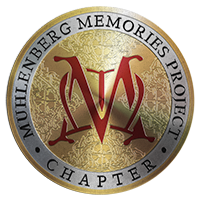The Muhlenberg Memories Project


What does it mean to feel you belong on a college campus?
As Muhlenberg students, which campus spaces and traditions inform your sense of inclusion?
How does your identity influence your interactions with and connectedness to the campus?
These are a few of the questions Dr. Kate Ranieri’s Documentary Research students explored in Fall 2020 while most were home, off-campus, engaged in remote learning, in response to the COVID-19 global pandemic.
Documentary work began over one hundred years ago and continues to be a craft with key concerns including questions about the veracity of images, questions about what counts as evidence, and questions about the ethical and legal obligations one has to those studied, the documentary praxis, and the audience. While documentary work is rich in its potential to artistically represent actuality, it also demands students question long-held notions of truth that have been formed by their values, attitudes and experiences, in order to ascertain what is in their focus of study and determine how to render what is a compelling and just narrative. Specifically, the task during Fall 2020 was to examine what it means to belong to Muhlenberg, to feel connected to and identify with the College.
The Documentary Research course, a requirement of the major, was taught by Dr. Kate Ranieri in collaboration with Susan Falciani Maldonado, Special Collections and Archives Librarian, and Tony Dalton, Digital Technologist, Media and Communication. Susan worked with students throughout the semester to introduce the Muhlenberg archives and primary research skills to give them an understanding of a sense of belonging in the past and present. Tony taught the Documentary Lab so students developed basic competency in media production techniques, comprehension and application of copyright laws, and artistic visual language.
The short digital narratives about belonging are as unique as the students themselves. They represent micro-histories of the past and present that give prominence to the landscape, time and social trends shaping an ordinary person or event on our campus. Created within the confines of the Covid-19 pandemic, these stories express, as Americanist writer and professor Jill Lepore writes, the “thick particularities of an individual’s life” (2012).
The Rise of Judiasm
at Muhlenberg
by Adam Agler
Reflecting on the history of religion at Muhlenberg College, Adam Agler delves into the events that led to the increased number of Jewish students on campus.
Finding Berg Pride
by Brayden Stallman
Stories of queer students have often been absent in telling the story of Muhlenberg College but a good place to start is by looking at how the college has historically seen queer students and how that impact still must be challenged today.
The Muhlenberg College Closet
by Riley Sweitzer
Fashion trends come and go throughout the years, but some fashion trends are specific to Muhlenberg College. How did we get to the style we wear today?
The Power of Athletics
by Andrew Sokolowski
Throughout the 1940s at Muhlenberg College, a small liberal arts school, athletics has proven to be a crucial piece in connecting the community both on campus and around the world.
My Dear Ciarla
by Joseph Romano
Since Joe Romano’s first year at Muhlenberg College, he has been a photographer for the school’s yearbook, the Ciarla. He questions what importance the yearbook holds to different people who are connected to Muhlenberg.
Muhlenberg in Crisis:
An Unwavering Community
by Kelly Reilly
With the unique circumstances surrounding the coronavirus pandemic, Kelly Reilly explores Muhlenberg’s history to show that both the World War Two era and the coronavirus era have similarly challenged the typical day-to-day life of Muhlenberg students.
A Seat at the Table
by Allison Mintz
Students and staff alike at Muhlenberg College know their dining hall is one of the top-ranked in the country when it comes to food. But as a space for inclusion, acceptance, and fun for everyone who enters its doors, the Wood Dining Commons provides a sense of belonging that tops any ranking.
Women of Muhlenberg
by Julia De Vita
Despite the challenges and adversity women faced on campus as Muhlenberg College became coed, they found ways to persevere and belong without really being allowed to.
Isolation from Injuries
by Amanda Gorski
Athletics play a major role in the college life for many students. This documentary explores the effects of injuries obtained from these athletics, and how it creates a sense of isolation for the hurt athletes.
At the beginning of the semester, students were asked to reflect in blog posts about their identity as Muhlenberg students and what made them feel connected. At the conclusion of the course, they reflected on how that perception had developed through their semester’s work. These are a few selected quotes:
[As a new transfer student], it’s definitely been hard to connect to the school during these times, as I still don’t deeply know what it’s like to be a student here and go to classes in person and interact with fellow students and faculty. It’s especially hard coming in all new as a sophomore, since everyone already knows each other and the school, and I don’t. However, after a month here, I feel much more comfortable than I did before school started. I’ve made connections with other students and faculty as best I can. One thing I have really noticed about Muhlenberg that is so different from my previous school is the sense of community…everyone I’ve come in contact with here has been so kind and welcoming. While it is very hard to feel connected to a new place during these unprecedented times, the sense of community Muhlenberg provides has really helped me to feel that way as best I can.
– Riley Sweitzer ‘23
I sought to uncover the queer history of Muhlenberg, the place that I call home and see what it was really like. I saw things that I liked to see and things that really upset me, and in my work I tried to highlight both of them. To love something is to wish to see improvement upon it and that’s why I wanted to create a documentary that was unafraid to be critical of this place I love. If I truly detested this place I would leave, but I don’t and I can see all of the potential it has to offer if we are unafraid to call it to action.
– Brayden Stallman ‘23
I had heard so many of my friends talking about how much they missed campus and the “d-hall” specifically, and I’ve been sharing my documentary with them to help lift their spirits. In addition to this being a fun creative outlet and morale booster, this assignment is a cumulative activity that helps show what we’ve learned throughout this course.
For over 170 years, through local and national crises and cultural and social changes, students have found–and have made–ways to belong at Muhlenberg.

